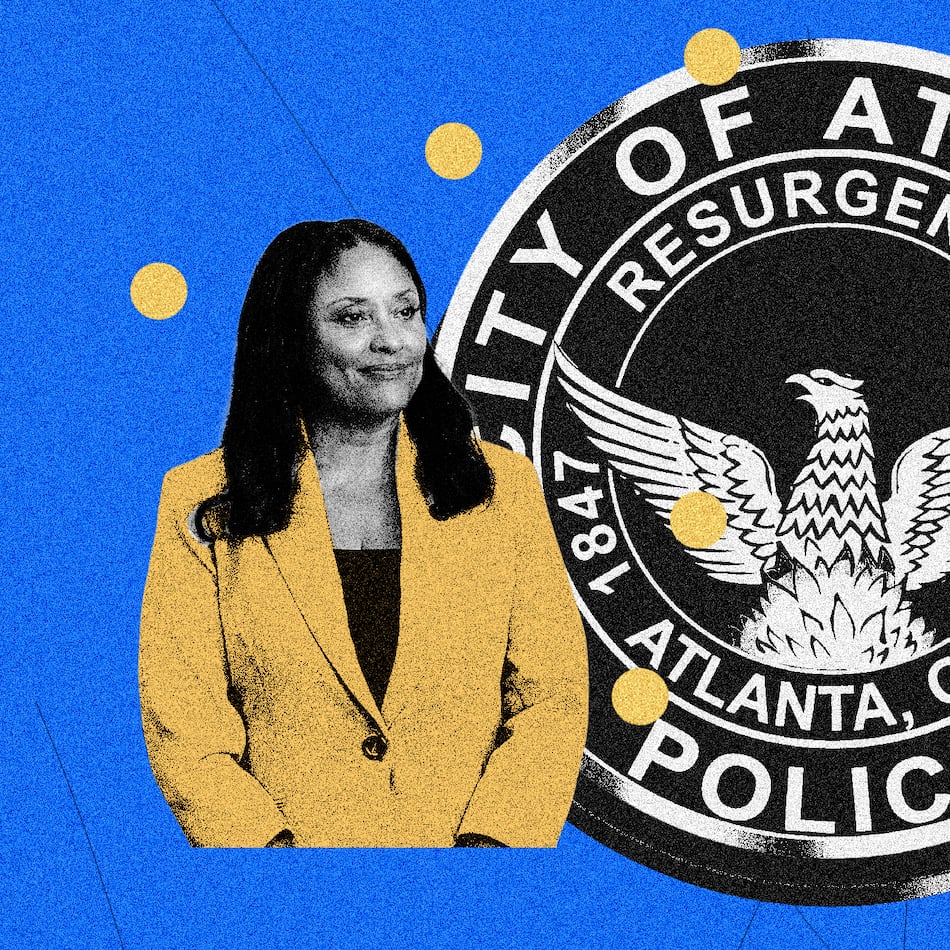Delta Air Lines sees social media posts like the one Mathew Palmer wrote on Sept. 10, 2025, as unacceptable.
But Palmer, a longtime flight attendant who sees himself as a Delta loyalist, can’t accept how he was fired for it.
He was notified of his suspension by the Atlanta-based airline the day after writing a Facebook post about conservative activist Charlie Kirk’s assassination. “Charlie Kirk is dead. Good riddance,” it read.
Palmer was terminated less than two weeks later.
He is one of an undisclosed number of Delta employees affected by the company’s fast and public response to Kirk-related posts, outlined in a companywide memo from CEO Ed Bastian sent two days after Kirk’s killing.
Employees were immediately suspended pending investigations of content that “went well beyond healthy, respectful debate,” Bastian wrote.
“Remember that we represent Delta, at all times, in any forum,” Bastian wrote. ”It’s essential that we act in ways that uphold our shared values and the human connection that defines us.”
This episode has laid bare institutions’ ability to police speech among their workers, across the country.
Entities including corporations, schools and the military have disciplined employees for social media regarding Kirk’s killing. Comedian Jimmy Kimmel was taken off the air, then reinstated, after his own comments about Kirk.
Vice President JD Vance urged people to report posts to employers. Secretary of Transportation Sean Duffy said American Airlines pilots suspended over the issue should be fired.
Palmer said he doesn’t regret his post given Kirk’s past comments, including about gay men like him.
But he said he’s speaking out because of how his firing happened.
His only chance to explain himself was a written statement, he said. After that he only received notice of his termination.
“I felt betrayed,” Palmer told The Atlanta Journal-Constitution. “Not because of who I was or what I did, but I wasn’t given an opportunity to explain where I was coming from.”
It doesn’t align, he said, with the values of the company he’s been representing — and defending for years.
Palmer wasn’t just a Delta flight attendant. He was a trained brand ambassador.
‘I thought Delta listened’
Palmer’s Atlanta apartment is littered with evidence of his nearly 18 years at Delta.
There’s a vintage Delta sign in his kitchen rescued from an employee lounge under renovation. A model Delta Atlanta Olympics plane perched above a cabinet. A huge world map by the front door, dotted with pins marking the countries he has visited.
“There’s no reason I should have been to all these places,” Palmer said. Before joining Delta at age 27, he had never been out of the country.
“(Delta) afforded me much more than a poor boy from Sale City, Georgia, who grew up in a trailer could ever afford. And I am more than grateful. Genuinely grateful.”
He served as a Delta government affairs representative in Washington, D.C., and in leadership roles in its LGBTQ employee resource group.
And he was a founding voice in the employee-led campaign against flight attendant unionization, even testifying about the effort in Congress in 2011.
“Delta normally listens, which is one of the reasons I advocated against the union,” Palmer said.
“I didn’t think you needed a union, because I thought Delta listened.”
This process, however, involved little listening and seemed subjective and haphazard, he said.
“What I saw was Delta is, in fact, a corporation, and your voice is as good as it is, as long as it is good to them,” Palmer said.
In response to questions about criticism of the terminations, Bastian said, “I could not disagree more vehemently. We’ve been crystal clear on our social media policies, our code of conduct, which we hold all of our employees to.”
Delta’s 15-page social media policy warns employees, contractors and retirees that even private posts can be shared and traced back to Delta.
“Our guiding principles make it clear that Delta does not tolerate hateful acts, discriminatory language or content that harasses or mistreats others in any forum,” it states.
Bastian told the AJC, “We respect people’s views and freedom of speech.”
“There’s a line that you cross, particularly as a Delta employee, as a representative of Delta, that got into glorifying violence, which is unacceptable at any level.”
A Delta spokesperson declined to comment further for this article.
Deepa Das Acevedo, an employment law professor at Emory University, said employers across industries “are clamping down on employee speech, even when that speech is off duty and even when it’s fully legal.”
“This is particularly visible right now, but it’s not new,” she said.
In most states, including Georgia, most private employers are “entitled to do this” for at-will employees, she said. “Our laws allow employers to own employee speech, 24/7.”
‘No conversation’
The Facebook post was up for less than an hour, Palmer said.
But it was quickly screenshotted and shared, mostly by angry acquaintances and current and former colleagues. Re-posts identified him as a Delta flight attendant, which his Facebook profile did not disclose. Some sent the post to management, he said.
Demands for his firing started to flow in via comments and direct messages. So did death threats, he said.
Palmer took the post down and in two subsequent ones tried to make his case for nuance. “Good riddance is to the line of thinking this foul man had,” Palmer wrote.
“And for the record, this is my opinion, maybe opposite of your own, but my right, nonetheless … I have never supported violence and do not still. To interpret my comment as such is a stretch.”
He said he was a frequent listener to Kirk’s podcast. “I enjoyed his way of debate. I did not always agree with him.”
Before last month, Palmer said he thought Delta was “a brand that would support the theater of thought. That we could have … respectful conversations about uncomfortable things."
After the murder of George Floyd in 2020, Delta implemented listening sessions to allow “our Black employees to have complicated conversations with leaders about what they were experiencing at work,” Palmer said.
But in this current situation, he said, there was “no conversation.”
“This is different than I’ve ever seen Delta operate before.”
Palmer said he had been proud to work for a company that stood up for what’s “right,” even when it wasn’t popular.
He saw it repeatedly support LGBTQ employees, including raising the Pride flag at Delta headquarters.
When the airline ended its corporate discount for the National Rifle Association in 2018 and withstood immense Republican pressure as a result, Palmer said Bastian “was brave enough to say … ‘Our values are not for sale.’”
Today, Palmer alleges, “our values currently are up for barter, it appears. And in my opinion, I question, is it from the administration?”
Bastian told the AJC the situation “has not had anything to do with the Trump administration. It’s 100% our view and how we’ve managed it in the past.”
Employee social media content is something the company is “constantly aware of,” he said, noting they have had multiple prior terminations for social media policy violations.
In one prominent example, a high profile flight attendant was fired in 2020 for scrutinized posts about race.
Credit: Christina Matacotta
Credit: Christina Matacotta
‘A bad precedent to set’
Sara Nelson, international president of the Association of Flight Attendants, said union organizers began hearing from suspended employees — including Palmer — almost immediately.
Delta declined to answer questions about how many employees have been suspended or terminated. AFA has heard from dozens, Nelson said, though they worry it’s “significantly underreported.”
AFA, which represents flight attendants at Delta’s peer carriers, has been working to unionize the Atlanta airline’s flight attendants for decades, despite three past failed votes.
While its unionized carriers also have dealt with Kirk-related social media posts, Delta stands out.
“We are not hearing about this as an ongoing issue at any other airline,” she said. “And that, I believe, is because of the way it has been approached.”
Rather than a “deliberative approach” with dialogue, where everyone “understands that they’ve been heard” and tension is de-escalated in the process, Nelson said Delta rapidly made discipline decisions.
In most union contracts, she said, there is an explicit discipline grievance process. AFA estimates that it can take anywhere from 30 days to a few years.
Union members are often paid pending an investigation, they are entitled to a union representative and at times a neutral arbitrator, she said.
That’s more along the lines of what’s happening for Delta’s unionized pilots.
As of Monday, the Delta chapter of the Air Line Pilots Association said it hadn’t been notified of any discipline decisions about pilots for social media content.
Their contract includes “due process rights” and “a grievance-arbitration procedure to have a neutral party hear and decide any discipline,” Karen Miller, spokesperson for the union told the AJC in a statement.
Credit: Christina Matacotta
Credit: Christina Matacotta
Nelson sent a letter to Bastian last month urging him to reinstate affected employees and start slower investigative processes.
She told the AJC she “made clear that we believe this is a bad move for Delta. It’s a bad precedent to set. And it also inflames tensions.”
On its anti-union website, Delta argues AFA’s grievance process “can be complicated and lengthy and the result you may want is not guaranteed.”
It points to the company’s “Open Door Policy” to allow an appeal to higher level managers and its “Conflict Resolution Process,” which allows employees to present a case regarding discipline or termination to a panel of peers.
Palmer said he opted not to pursue the “Open Door Policy” appeal, because he didn’t think it would change the result.
He said he has served on conflict resolution panels and seen them work.
But Delta told him last week his case doesn’t qualify.
All options ‘open’
Since the suspension, Palmer said he has been “more than supported” by the pro-Union Delta flight attendants he had just a few months ago been working against.
While he says he still has concerns about how the AFA would integrate into Delta’s culture, he can see what union protection could have afforded him.
In the meantime, AFA is trying to operate as if it did have a Delta contract and keeping all legal “options open,” Nelson said.
Palmer, too, said he is exploring his legal options.
He said he’s speaking now in part, on behalf of those still at Delta.
Some have reached out to him say they are now afraid to express opinions among colleagues.
Palmer said he feels Delta has effectively told them to “shut up and serve.”
About the Author
Keep Reading
The Latest
Featured




